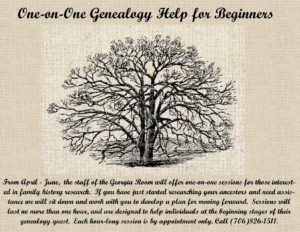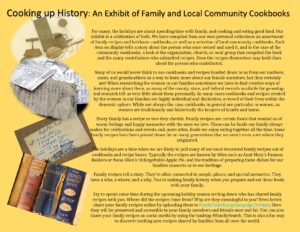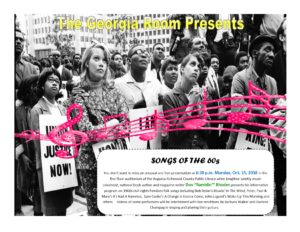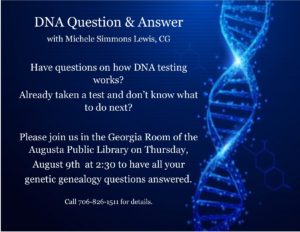-
Recent Posts
Recent Comments
Archives
- July 2025
- June 2025
- May 2025
- April 2025
- March 2025
- February 2025
- January 2025
- December 2024
- November 2024
- October 2024
- September 2024
- August 2024
- July 2024
- June 2024
- May 2024
- April 2024
- February 2024
- January 2024
- August 2021
- June 2021
- February 2021
- January 2021
- December 2020
- October 2020
- September 2020
- May 2020
- April 2020
- March 2020
- January 2020
- December 2019
- May 2019
- March 2019
- December 2018
- November 2018
- October 2018
- July 2018
- June 2018
- May 2018
- February 2018
- January 2018
- October 2017
- September 2017
- August 2017
- June 2017
- May 2017
- April 2017
- March 2017
- February 2017
- December 2016
- October 2016
- September 2016
- August 2016
- July 2016
- May 2016
- April 2016
- March 2016
- February 2016
- January 2016
- December 2015
- November 2015
- October 2015
- September 2015
- August 2015
- July 2015
- June 2015
- May 2015
- April 2015
- March 2015
- February 2015
- January 2015
- December 2014
- November 2014
- October 2014
- September 2014
- August 2014
- July 2014
- June 2014
- May 2014
- April 2014
- February 2014
- January 2014
- November 2013
- October 2013
- September 2013
- August 2013
- July 2013
- June 2013
- May 2013
- April 2013
- March 2013
- February 2013
- January 2013
- December 2012
- November 2012
- October 2012
- September 2012
- August 2012
- July 2012
- June 2012
- May 2012
- April 2012
- March 2012
- February 2012
- January 2012
- December 2011
- November 2011
- October 2011
- September 2011
- August 2011
- July 2011
- June 2011
- May 2011
- April 2011
- March 2011
- February 2011
- January 2011
- December 2010
Categories
Meta
Beyond Basics Class
 At some point or another, every family researcher runs into that dreaded “brick wall”. Join Tina Rae Floyd as she shows you how to mine your documents for more clues to help you overcome brick walls and challenging ancestral research. Discover how developing a better understanding of record creation can help you determine where to look next for that elusive clue to your ancestor’s story. Call (706)826-1511 to reserve your spot today!
At some point or another, every family researcher runs into that dreaded “brick wall”. Join Tina Rae Floyd as she shows you how to mine your documents for more clues to help you overcome brick walls and challenging ancestral research. Discover how developing a better understanding of record creation can help you determine where to look next for that elusive clue to your ancestor’s story. Call (706)826-1511 to reserve your spot today!
Tuesday, 23 April 2019 @ 10:30am
Augusta-Richmond County Public Library Main Building
Auditorium A
823 Telfair St, Augusta, GA 30901
Posted in Uncategorized
Leave a comment
Robert Mills Book of Designs Now Available
Historic Architectural Sketches of Augusta First Presbyterian Church now available digitally
March 25, 2019
Architectural record book created by nationally renowned architect Robert Mills in 1807 is believed to be among the oldest surviving plans for any building in Georgia.
Augusta, GA– The Georgia Heritage Room of the Augusta-Richmond County Public Library System is pleased to announce the availability of Designs for Augusta Church, State of Georgia by Robert Mills of South Carolina, Architect, Philadelphia, 22 July 1807 at https://dlg.usg.edu/record/fpcag_rmfpc.

The collection consists of an architectural record book belonging to First Presbyterian Church of Augusta, Georgia, and created by nationally renowned architect Robert Mills in July 1807. Mills executed the three-part record at the behest of the building committee, and in it details plans for the design of the future church. Support for this project provided by the Augusta-Richmond County Public Library System and Georgia HomePLACE, a unit of the Georgia Public Library Service.
Tina Monaco of the Georgia Heritage Room notes: “Augusta-Richmond County Public Library System is honored to have assisted First Presbyterian Church of Augusta with the digital preservation of Robert Mills’ manuscript of architectural designs, particularly as it contributes to the early history of the Church as well as Augusta. More broadly, the plans are an excellent example of Mills’ early portfolio, complementing an already vast body of work that defined him as a key architect of the Early Republic.”
About Robert Mills
Robert Mills is known, among his many projects, for the design of the Washington Monument. A prolific architect and engineer, Mills began his studies in Charleston, but as a young man moved to Philadelphia, and apprenticed under James Hoban, designer of the White House, a project to which Mills contributed. He also studied under famed architect and engineer of the period, Benjamin Henry Latrobe, and fell under the tutelage of Thomas Jefferson who designed and built Monticello, his home in Charlottesville, Virginia.
Throughout his life, Robert Mills designed numerous buildings throughout the Mid-Atlantic, including official appointments by President Andrew Jackson in 1836 to design office complexes for the U.S. Treasury and the Patent Office. Mills was also an accomplished author, having published Mills’ Atlas of South Carolina in 1825.
Design for First Presbyterian Church in Augusta, Georgia (1807) was accomplished early in his career, during a time when he received commissions to build other churches, notably the Circular Congregational Church in Charleston, South Carolina. Classical Revival architecture predominated during the mid-eighteenth century onward, heavily influencing Mills and his contemporaries. This style is reflected in his plans for First Presbyterian Church. Though the building has undergone significant remodels over the years, it retains its original classical form.
About Augusta-Richmond County Public Library System
The Augusta-Richmond County Public Library System (ARCPLS) serves more than 250,000 county residents. As a member of Public Information Network for Electronic Services (PINES), a program of the Georgia Public Library Service, ARCPLS provides access to over 10 million books. ARCPLS facilitates programs and classes to educate and entertain all ages at no cost. In addition to being a vital meeting place where the community can gather, explore new worlds, and share ideas and values, ARCPLS is a community hub and a critical anchor for our residents and neighbors. With a committed and diverse staff, ARCPLS continues to bring innovative and adaptive information and technology to its patrons. Visit ARCPLS at https://arcpls.org/.
About Georgia HomePLACE
Georgia HomePLACE encourages public libraries and related institutions to participate in the Digital Library of Georgia. HomePLACE offers a highly collaborative model for digitizing primary source collections related to local history and genealogy. HomePLACE is supported with Federal LSTA funds administered by the Institute of Museum and Library Services through the Georgia Public Library Service, a unit of the Board of Regents of the University System of Georgia. Learn more at http://www.georgialibraries.org/homeplace.
About the First Presbyterian Church of Augusta, Georgia
First Presbyterian Church was established in 1804. These 1807 drawings by Robert Mills were used to guide the construction of the sanctuary, which was completed in 1812. It has been occupied continuously since that time. During the Civil War, the sanctuary was converted to a hospital and used for wounded soldiers. The church celebrated her bicentennial in 2012. Located in historic downtown Augusta, the church seeks to restore people and rebuild places through the gospel of Jesus Christ to the glory of God.
Posted in Uncategorized
Leave a comment
January Genealogy Class
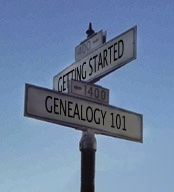 A new year means a new opportunity to finally get started on the family history you’ve been meaning to do. In this class we will go over the basic rules of family history research and briefly discuss various resources you can access and how. Some of these resources are Web-based so basic computer skills are required. We will also practice filling out a Pedigree Chart and Family Group worksheet, the building blocks of family research. Please call (706) 826-1511 for details.
A new year means a new opportunity to finally get started on the family history you’ve been meaning to do. In this class we will go over the basic rules of family history research and briefly discuss various resources you can access and how. Some of these resources are Web-based so basic computer skills are required. We will also practice filling out a Pedigree Chart and Family Group worksheet, the building blocks of family research. Please call (706) 826-1511 for details.
Posted in Uncategorized
Leave a comment
Cooking up History
Through the holidays (November-December) the Georgia Room will host an exhibit of family and local community cookbooks chosen from our own personal collections. We’ve also included a selection of vintage household kitchen wares and other interesting pieces as they relate to the history of cooking, and domesticity. Please visit the Georgia Room on the third floor of Augusta-Richmond County Public Library at 823 Telfair Street to see our eclectic exhibit.
Thanks!
Tina Monaco Tina Rae Floyd
Posted in Uncategorized
Leave a comment
Augusta Chinese-American Oral History Project
October 16, 2018
WRITER: Mandy Mastrovita, mastrovi@uga.edu, 706-583-0209
CONTACT: Sheila McAlister, mcalists@uga.edu, 706-542-5418
ATLANTA, Ga. — Oral histories from Chinese-Americans living in Augusta now available
The Digital Library of Georgia (DLG) is pleased to announce the availability of the Augusta Chinese-American Oral History Project at https://dlg.usg.edu/collection/gaec_caoh. The collection, which belongs to the Augusta-Richmond County Public Library System (ARCPLS), contains 26 oral history interviews of of individuals who either immigrated to Augusta, Georgia from China, and/or grew up in Augusta during the early to mid-twentieth century. It is available thanks in part to the DLG’s 2018 Competitive Digitization grant program, a funding opportunity intended to broaden DLG partner participation for statewide historic digitization projects.
The interviews were gathered in 2011 and 2012 by members of the Chinese Consolidated Benevolent Association of Augusta (CCBA), with ARCPLS serving as a partner institution. The original intent of the project was to create an archive of stories and personal family histories of a select group of individuals, mostly elders within the Augusta Chinese-American community to preserve for future generations, particularly for the younger members of the community. By making the oral histories easily accessible online, younger generations are more likely to seek out information regarding their heritage.
ARCPLS Genealogy and Local History Librarian Tina Monaco notes: “Because of the variety of topics discussed by those interviewed, the oral histories appeal to a broad number of researchers, social historians, those tracing their family histories, and students. Anyone interested in studying immigration, minority cultures, economic history, race relations, or the establishment of Chinese-American organizations in the South will find the interviews informative.”
Monaco also states: “Several of the interviewees discuss family-owned businesses that opened in predominantly African-American neighborhoods in Augusta during the Jim Crow era. Whites in Augusta refused to provide services to African-Americans, thereby opening a window of opportunity, which Augusta’s Chinese-Americans took advantage of by opening successful groceries, restaurants, and laundry establishments, a few of which were damaged or destroyed during the Augusta Race Riots of 1970. This dynamic would be a rich area of study for both social scientists and historians concerned with the interaction of social and economic factors among minority and discriminated populations in the Jim Crow South. Finally, these stories offer a fresh voice to the complex narrative of southern history, one that speaks to the diversity and multiculturalism of the South.”
Travis Tom, curator of the Augusta Chinese-American Oral History project and board member of the CCBA notes: “We are hoping that the oral histories reach a wider audience–across the nation and perhaps the world–and educates those interested in how Chinese Americans settled in Augusta, Georgia (the Southeast) and started their lives. It is important that we recorded these stories to show how people in our community lived during our time (early 1900s-2011). We encourage other groups to do the same.”
About Augusta-Richmond County Public Library System
The Augusta-Richmond County Public Library System (ARCPLS) is a public library system serving more than 250,000 county residents. As a member of Public Information Network for Electronic Services (PINES), a program of the Georgia Public Library Service covering 53 library systems in 143 Georgia counties, ARCPLS supports any resident in the PINES network and provides access to over 10 million books. ARCPLS has a collection size of over 316,000 with a circulation of more than 478,000 annually. ARCPLS facilitates programs and classes to educate and entertain all ages at no cost. In addition to being a vital meeting place where the community can gather, explore new worlds, and share ideas and values, ARCPLS is a community hub and a critical anchor for our residents and neighbors. With a committed and diverse staff, ARCPLS continues to bring innovative and adaptive information and technology to its patrons. Visit ARCPLS at https://arcpls.org/.
About the Digital Library of Georgia
Based at the University of Georgia Libraries, the Digital Library of Georgia https://dlg.usg.edu is a GALILEO initiative that collaborates with Georgia’s libraries, archives, museums, and other institutions of education and culture to provide access to key information resources on Georgia history, culture, and life. This primary mission is accomplished through the ongoing development, maintenance, and preservation of digital collections and online digital library resources. DLG also serves as Georgia’s service hub for the Digital Public Library of America and as the home of the Georgia Newspaper Project, the state’s historic newspaper microfilming project.
Posted in Uncategorized
Leave a comment
Was Interracial Love Possible in the Days of Slavery? Descendants of One Couple Think So
Back in 2016, the Georgia Heritage Room had the honor of hosting an exhibit titled, LOVE FRAMED IN BLACK & WHITE: A POWERFUL STUDY IN LOVE, RACE, AND COURAGE, which told the story through a collection of pictures and images of an enduring love between a former slave and a white judge from a prominent Edgefield, South Carolina planter family. Paula C. Wright, who created the exhibit, inherited the pictures following her grandmother’s death, and with this box of over 500 pictures and stories told to her as a child, she began to slowly and lovingly piece together her family history and the incredible but courageous marriage of her third great-grandfather Judge William Ramey to former Edgefield slave, Kittie Simpkins. Several of Ms. Wright’s ancestors who followed from this union made Augusta, Georgia their home including Kittie herself who lived in a house on Taylor Street when the atmosphere of hostility and violence which pervaded Edgefield after Reconstruction prompted Judge Ramey to seek out a safe haven for his wife.
Below is a link to an article written by the New York Times documenting this incredible story.
https://www.nytimes.com/2018/10/21/us/interracial-slavery-love.html
Posted in Uncategorized
Leave a comment
Songs of the Sixties
SONGS OF THE SIXTIES: You don’t want to miss an unusual and free presentation at 6:30 p.m. Monday, Oct. 15, in the first floor auditorium of the Augusta-Richmond County main library, 823 Telfair St., when longtime weekly music columnist, national book author and magazine writer Don “Ramblin’” Rhodes presents his informative program on 1960s civil rights freedom folk songs including Bob Dylan’s Blowin’ In The Wind; Peter, Paul & Mary’s If I Had A Hammer, Sam Cooke’s A Change Is Gonna Come, John Legend’s Woke Up This Morning and others. Videos of some performers will be intertwined with live renditions by Barbara Walker and Darlene Champagne singing and playing their guitars. This has been only presented once before at the Nancy Carson library in North Augusta and drew a large crowd who sang along on the grand finale number. Rhodes has been writing about music for 55 years and has three times won the Greater Augusta Arts Council’s Media Person of the Year Award as well as the Louis C. Harris Media Award from the West Augusta Rotary Club. He also has been a nominee to the Georgia Music Hall of Fame in the non performing category. Please call the Georgia Heritage Room for details. 706-826-1511
Posted in Uncategorized
Leave a comment


